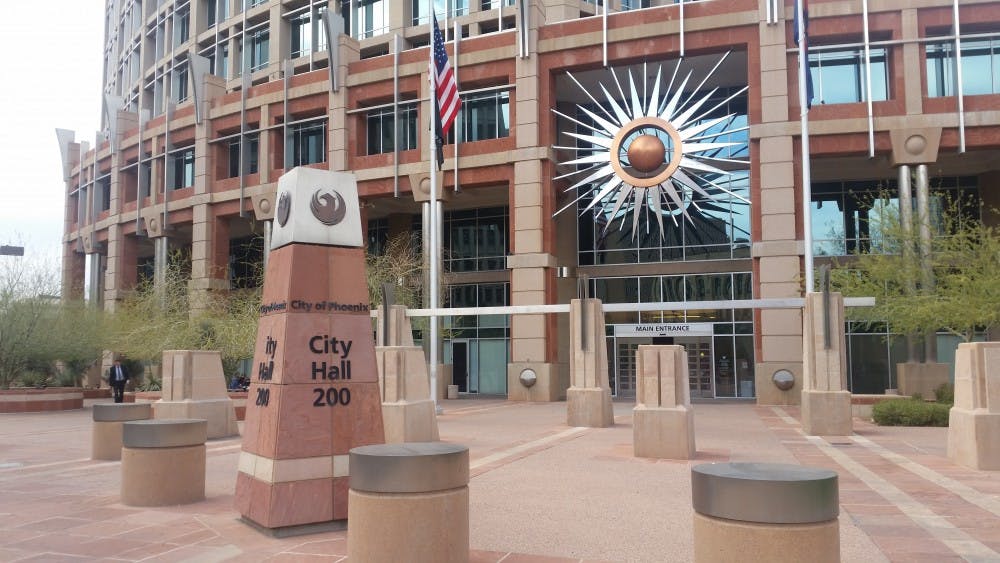Civics classes teach federalism, but ASU students find themselves in the center of ground zero for a new battle to reshape what it means to embrace local control. Students searching for greater democracy should look to figureheads like micro-federalist Phoenix Mayor Greg Stanton.
Federalism has previously focused on the nature of state rights. After all, looking at early U.S. history, the states were the organizations that gave the federal government its power — delegates to the Constitutional Convention were arranged by state, and states continue to be the route for sending congressional delegations and approving constitutional amendments.
Today, however, federalism theory is changing.
Instead of focusing on the mechanics of government function, theorists like Heather Gerken of Yale Law School are working to define how federalism works in theory, allowing for the expansion of federal ideas to apply not only to national-state interactions, but state-city interactions as well.
While the national government is built from the bottom up by states — a narrative particularly embraced by the GOP in recent years — the same cannot be said of cities, which are given power by state-drafted documents called charters.
These specify what cities can do and where their power ends, allowing them to be controlled by the state at a greater level. Because of this dynamic, the state-city relationship is not as well protected and does not include the same system of courts.
Phoenix City Councilwoman Laura Pastor’s Chief of Staff David Longoria explains that these charters are a counterpoint to the concept of home rule, which recognizes greater local sovereignty.
Local leadership is perplexed by this, saying that cities are uniquely able to listen to citizen voices as they are the most local level of the government.
This has produced a movement Longoria referred to as micro-federalism, in which the municipality — city or town— would have greater representation within the state and greater understood autonomy.
While talking about federalism theory sounds boring and obscure, the fights it is causing nationwide should bring students in.
Locally, environmental activism has found friends in city halls in progressive Tempe and Phoenix, where activists have been able to gain a foothold. Similarly, LGBT and particularly trans rights, activists have always been led by city halls and continue to cause battles in Charlotte, North Carolina, and Houston, Texas.
Without the concerns of those in far-flung suburbs, cities can show the value of progressive policy without having to force it upon everyone. Nonetheless, more conservative state governments have seen it necessary to provoke a fight and explicitly come out against principles rooted in the U.S. Constitution but which have yet to gain strong legal precedent.
All of this matters to students, who are concerned over recent legal challenges to their most basic methods of participation. Cities will defend students against measures like the defeated anti-protest State Bill 1142 or anti-ballot initiative House Bill 2042 should they enter into legal force.
Students need to know how to protect cities to make certain that their most powerful allies are able to help.
Ken Strobeck is the executive director of the League of Arizona Cities and Towns an organization that lobbies the state government to make certain the municipalities have abilities to work autonomously.
“We have two core principles,” Strobeck said. "One is to protect local decision-making, and the other is to protect shared revenue."
These two small matters are generally out of the realm of student political discussions but matter immensely in keeping cities able to fight for local rights, whether that means citizen initiatives or public safety.
By getting more involved in watching moves like Mayor Stanton’s attempts to overcome anti-municipal state policy or national initiatives like #DefendLocal, students are working to align themselves with a group getting steadily more backing.
The only question is whether enough interest will build to construct the legal and structural precedent necessary to keep cities as major players in balancing the worst excesses of national and state policy.
Reach the columnist at benjamin.steele@asu.edu or follow @blsteele17 on Twitter.
Editor’s note: The opinions presented in this column are the author’s and do not imply any endorsement from The State Press or its editors.
Want to join the conversation? Send an email to opiniondesk.statepress@gmail.com. Keep letters under 300 words and be sure to include your university affiliation. Anonymity will not be granted.
Like The State Press on Facebook and follow @statepress on Twitter.




